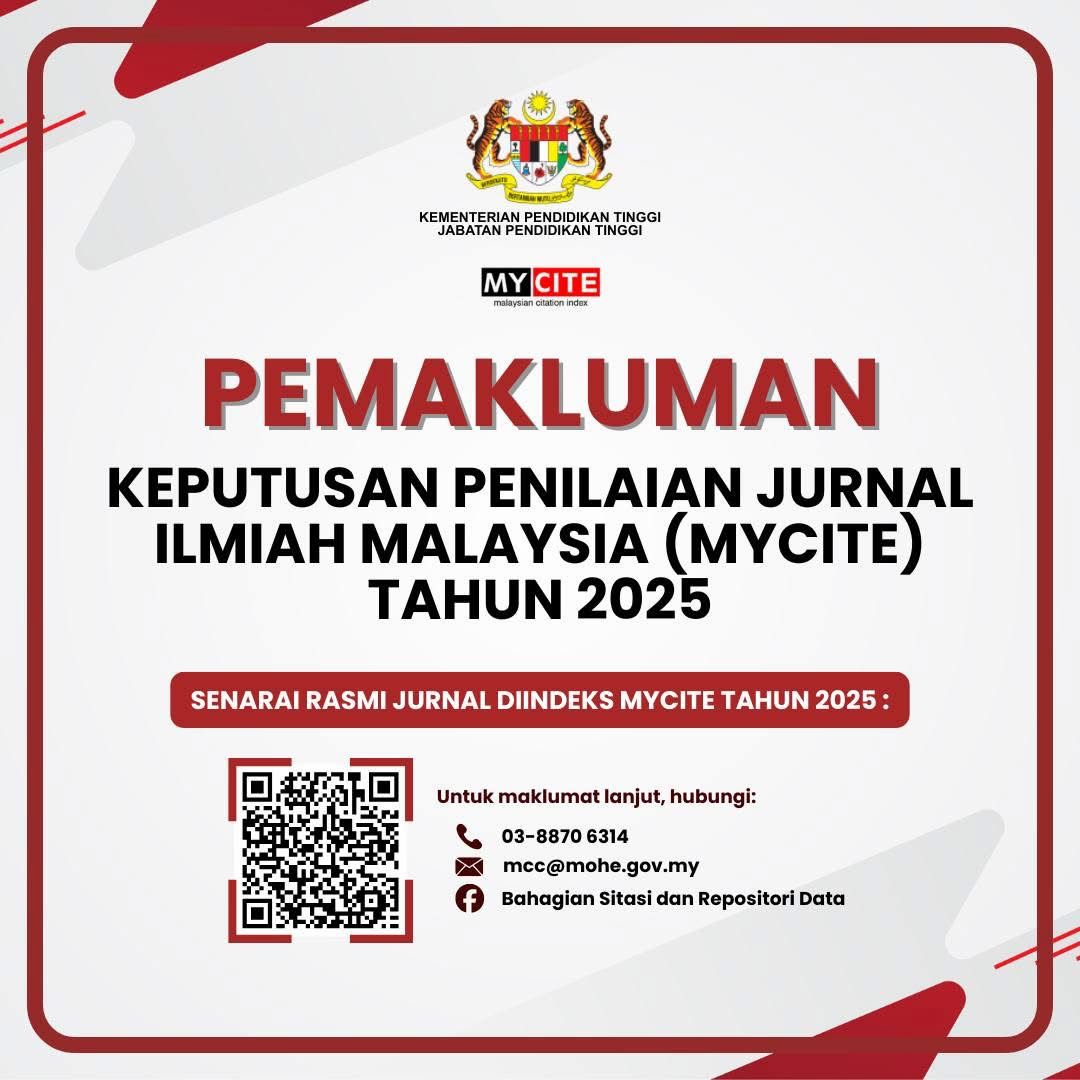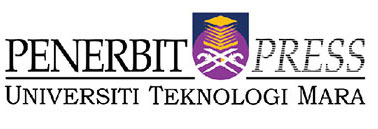Art and Cultural Tourism for Sustainable Income: A Conceptual Framework for Senior Citizen Centres in Malaysia
DOI:
https://doi.org/10.24191/idealogy.v10i2.845Keywords:
Art Tourism, Economic Empowerment, Senior Citizen Centres, Sustainability, Conceptual FrameworkAbstract
This paper proposes a conceptual framework that fully integrates the Triple Bottom Line (TBL) and Socio-Ecological Model (SEM) as it examines just how art and cultural tourism initiatives are able to support senior citizen centres throughout Malaysia in order to generate sustainable income. The framework identifies five factors, which is Social Engagement, Economic Growth, Environmental Effects, Operational and Technology. In order to assess each of the positive effects that each factor has had on income sustainability, some hypotheses are developed. An inclusive mixed-methods approach is proposed, a combination of quantitative surveys and regression analysis with qualitative thematic interviews. The expected results is a replicable empowerment model to guide cultural tourism as practical income strategy for senior centres, carefully balancing financial viability, social well-being, as well as environmental stewardship.
Keywords: Art Tourism, Economic Empowerment, Senior Citizen Centres, Sustainability, Conceptual Framework.
References
Balqis-Ali, N. Z., & Fun, W. H. (2024). Social support in maintaining mental health and quality of life among community-dwelling older people with functional limitations in Malaysia: a population-based cross-sectional study. BMJ Open, 14(5), e077046. https://doi.org/10.1136/bmjopen-2023-077046
Buhalis, D., Leung, X. Y., Fan, D., Darcy, S., Chen, G., Xu, F., Wei-Han Tan, G., Nunkoo, R., & Farmaki, A. (2023). Editorial: Tourism 2030 and the contribution to the sustainable development goals: the tourism review viewpoint. In Tourism Review (Vol. 78, Issue 2, pp. 293–313). Emerald Publishing. https://doi.org/10.1108/TR-04-2023-620
Confetto, M. G., & Covucci, C. (2021). A taxonomy of sustainability topics: a guide to set the corporate sustainability content on the web. The TQM Journal, 33(7), 106–130. https://doi.org/10.1108/TQM-06-2020-0134
Csikósová, A., Janošková, M., & Čulková, K. (2020). Providing of tourism organizations sustainability through Tripple Bottom Line approach. Entrepreneurship and Sustainability Issues, 8(2), 764–776. https://doi.org/10.9770/jesi.2020.8.2(46)
Dentoni, D., Pinkse, J., & Lubberink, R. (2020). Linking Sustainable Business Models to Socio-Ecological Resilience Through Cross-Sector Partnerships: A Complex Adaptive Systems View. Business & Society, 60(5), 1216–1252. https://doi.org/10.1177/0007650320935015
Elkington, J. (1997). Cannibals with Forks: The Triple Bottom Line of 21st Century BusinessCapstone. Capstone.
Hollands, R. G. (2010). ENGAGING AND ALTERNATIVE CULTURAL TOURISM? Journal of Cultural Economy, 3(3), 379–394. https://doi.org/10.1080/17530350.2010.506324
Kirby, D. A., El-Kaffass, I., & Healey-Benson, F. (2022). Harmonious entrepreneurship: evolution from wealth creation to sustainable development. Journal of Management History, 28(4), 514–529. https://doi.org/10.1108/JMH-11-2021-0060
Liu, Y.-L., Chiang, J.-T., & Ko, P.-F. (2023). The benefits of tourism for rural community development. Humanities and Social Sciences Communications, 10(1), 137. https://doi.org/10.1057/s41599-023-01610-4
Maduwinarti, A., Maruta, I. G. N. A., & Rahmatullah, A. (2024). Disruption of Digitalization in MSMEs from the Three Bottom Line Perspective in the Endemic Era (pp. 64–69). https://doi.org/10.2991/978-2-38476-106-7_9
Magdy. (2025, February 10). Cultural Sustainable Tourism Supports both Heritage Preservation and Economic Development. IEREK. https://www.ierek.com/news/cultural-sustainable-tourism-balancing-heritage-and-development/
Mat Nashir@Mohd Nasir, R., & Daimin, G. (2022). Digital Illustration as Visual Communication to Promote Kelantan Cultural Heritage. Idealogy Journal, 7(2), 68–75. https://doi.org/10.24191/idealogy.v7i2.355
Mattera, M., & Soto, F. (2022). Dodging the bullet: overcoming the financial impact of Ukraine armed conflict with sustainable business strategies and environmental approaches. The Journal of Risk Finance, 24(1), 122–142. https://doi.org/10.1108/JRF-04-2022-0092
McLoughlin, E., Hanrahan, J., Duddy, A., & Duffy, S. (2018). European tourism indicator system for sustainable destination management in county Donegal, Ireland. European Journal of Tourism Research, 20, 78–91. https://doi.org/10.54055/ejtr.v20i.341
Nogales-Muriel, R., Andersen, L. L., & Ferreira, S. (2024). Guest editorial: Unlocking the transformative potential of culture and the arts: innovative practices and policies from social enterprises and third-sector organisations. Social Enterprise Journal, 20(2), 113–122. https://doi.org/10.1108/SEJ-03-2024-143
Noor Hishamuddin, N. K., Hairul Anuar, I. M., Che Din, S., & Mohd Lazim, N. A. (2024). An Integration of 3D Design in Malaysia Digital Tourism. Idealogy Journal, 9(1). https://doi.org/10.24191/idealogy.v9i1.492
Prakash, D., Bisla, M., & Arora, T. (2023). Role of Environment Dimensions to strive Sustainable Entrepreneurship: A Triple Bottom Line Approach. International Journal of Professional Business Review, 8(3), e0698. https://doi.org/10.26668/businessreview/2023.v8i3.698
Salman, A., Jaafar, M., Mohamad, D., & Malik, S. (2021). Ecotourism development in Penang Hill: a multi-stakeholder perspective towards achieving environmental sustainability. Environmental Science and Pollution Research, 28(31), 42945–42958. https://doi.org/10.1007/s11356-021-13609-y
Trišić, I., Štetić, S., Privitera, D., & Nedelcu, A. (2019). Wine Routes in Vojvodina Province, Northern Serbia: A Tool for Sustainable Tourism Development. Sustainability, 12(1), 82. https://doi.org/10.3390/su12010082
WONDIRAD, A., Tolkach, D., & King, B. (2020). Stakeholder collaboration as a major factor for sustainable ecotourism development in developing countries. Tourism Management, 78, 104024. https://doi.org/10.1016/j.tourman.2019.104024
Zhang, Y., Xiong, Y., Lee, T. J., Ye, M., & Nunkoo, R. (2020). Sociocultural Sustainability and the Formation of Social Capital from Community-based Tourism. Journal of Travel Research, 60(3), 656–669. https://doi.org/10.1177/0047287520933673
Zhou, C., & Sotiriadis, M. (2021). Exploring and Evaluating the Impact of ICTs on Culture and Tourism Industries’ Convergence: Evidence from China. Sustainability, 13(21), 11769. https://doi.org/10.3390/su132111769
Downloads
Published
Issue
Section
License
Copyright (c) 2025 UiTM Press

This work is licensed under a Creative Commons Attribution-NonCommercial-NoDerivatives 4.0 International License.
UiTM Press (the Publisher) has agreed to publish the undersigned author’s paper in Idealogy Journal. The agreement is contingent upon the fulfilment of a number of requirements listed below.
1. The undersigned author warrants that the paper entitled below is original, that it is not in any way libellous or unlawful in Malaysia, that it does not infringe any copyright or other proprietary right. The undersigned hereby represents and warrants that he/she is the author of the paper, except for material that is clearly identified as to its original source, with permission notices from the copyright owners where required. The undersigned represents that he/she has the power and authority to sign and execute this agreement.
2. The undersigned author warrants that the paper entitled below has not been published elsewhere, and also it will not be submitted anywhere else for publication prior to acceptance/rejection by this Journal.
3. By submitting the paper entitled below, the undersigned author agrees to transfer the rights to publish and distribute the paper in an international e-journal (entitled above) to Publisher.
4. The undersigned author agrees to make a reasonable effort to conform to Publisher's submission guidelines and to liaise with the editor to ensure that the requirements of these guidelines are met to a reasonable degree.
5. The corresponding author signs for and accepts responsibility for releasing this material on behalf of any and all coauthors. This agreement is to be signed by at least one of the authors who has obtained the assent of the co-author(s) where applicable. After submission of this agreement signed by the corresponding author, changes of authorship or in the order of the authors listed will not be accepted.




